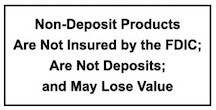Whether you are self-employed, a small business owner, an independent contractor, or a company employee, your earnings will be taxed at some point.
For company employees, taxes are automatically calculated and taken out of your gross salary along with any additional withholdings that you request. Your employer then pays the Internal Revenue Service (IRS) your total withholdings on your behalf.
If you work for yourself, you are responsible for setting aside a portion of your income and sending it to the IRS. Depending on the amount of your income, you must pay these estimated taxes quarterly to avoid paying a penalty.
Whether or not you should be paying estimated taxes can be confusing, so we’ll answer some common questions.
- Who must pay estimated taxes?
- How do you calculate your estimated tax?
- When are estimated taxes due?
- What happens if you don’t pay or underpay your estimated tax?
- Final Words
Who must pay estimated taxes?
According to IRS guidelines, you must pay an estimated tax if both of the following apply:
- “You expect to owe at least $1,000 in tax for the current tax year after subtracting your withholding and refundable credits.”
- “You expect your withholding and refundable credits to be less than the smaller of:
- 90 percent of the tax to be shown on your current year’s tax return, or
- 100 percent of the tax shown on your prior year’s tax return.” (The prior year’s tax return must cover all 12 months.)
Taxable earnings may come from a job, investments, hobbies, rent, and even alimony to name a few sources.
You don’t have to pay estimated taxes if you meet all three of the following conditions:
- You had no tax liability for the year before.
- You were a U.S. citizen or resident the entire year.
- Your prior tax year covered 12 months.
How do you calculate your estimated tax?
To figure out your estimated tax, you’ll need a copy of your tax return from the previous year. The amounts of your reported income, deductions, and tax credits will help you estimate your adjusted gross income, taxable income, deductions, and credits for the coming year. You can use the Estimated Tax for Individuals worksheet on Form 1040-ES to calculate your tax payment.
When are estimated taxes due?
You must pay your estimated tax payment based on your earnings each quarter:
- Q1 (January 1 – March 31) is due April 15.
- Q2 (April 1 – May 31) is due June 15.
- Q3 (June 1 – August 31) is due September 15
- Q4 (September 1 – December 31) is due January 15 of the following year.
If the 15th of the month falls on a weekend or a federal holiday, your payment must be made or postmarked by the next business day.
You should mail your payments with the appropriate payment voucher from Form 1040-ES. You can also make a secure payment online through IRS Direct Pay or the Electronic Federal Tax Payment System (EFTPS).
What happens if you don’t pay or underpay your estimated tax?
If you don’t pay or you underpay your payment, you will owe a penalty. However, you may avoid the penalty if you owe less than $1,000 after subtracting your withholdings and credits or if you paid either at least 90 percent of the tax for the current year or 100 percent of the tax shown on your tax return from the prior year—whichever is smaller. Also, if you underpay one quarter, you can include the amount with your next quarterly payment.
Final Words
Everyone fears an IRS audit. If you have questions about estimated taxes, the IRS has several resources to ease your concerns. You might also consider consulting with a certified public accountant or a tax professional at the beginning of the year. If you owe estimated taxes, every season is tax season. Make sure you’re prepared.


